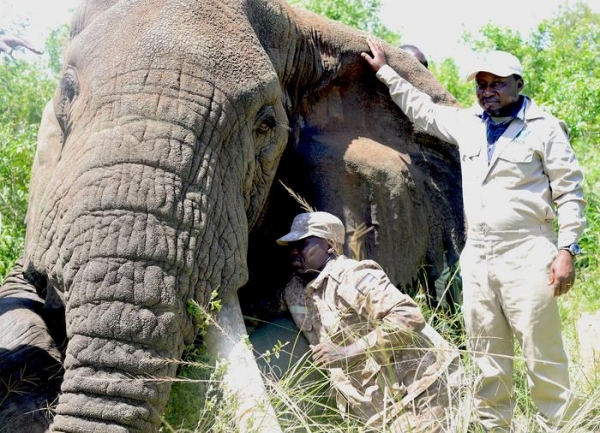A collaborative team of researchers from the University of Massachusetts Amherst and the Wildlife Conservation Society (WCS), which runs the world’s largest field conservation program, has conducted first-of-its kind research into how global climate change affects African elephants. The work, published recently in PLOS Sustainability and Transformation, shows that older elephants will have markedly decreased chances of survival, which will not only drastically reduce the species’ overall ability to weather the changing climate, but will send ripple effects throughout the surrounding landscape. The team has also modelled possible mitigation scenarios, which WCS is already implementing.
Africa’s Greater Virunga Landscape (GVL) is a 15,700-square-kilometer area of savannas, mountains and lakes in Uganda, Rwanda and the Democratic Republic of Congo. It is home to the largest land animals in Africa, with seven national parks, three tropical high-forest reserves and three wildlife reserves, three of which are world heritage sites, covering 88% of the area. It is also home to a population of African elephants whose numbers have dropped so precipitously over the past century that they are now listed as critically endangered by the International Union for Conservation’s Red List.
Elephants play a key role in modifying and sustaining their landscapes by dispersing the seeds of the plants they feed upon, felling trees and enriching soil fertility with their dung. They also play an important role in many African cultures.
Read More: University of Massachusetts Amherst
Simon Nampindo (standing) helping to collar an elephant in Murchison Falls National Park, Uganda. (Photo Credit: Clinton Mwebaze/WCS)


